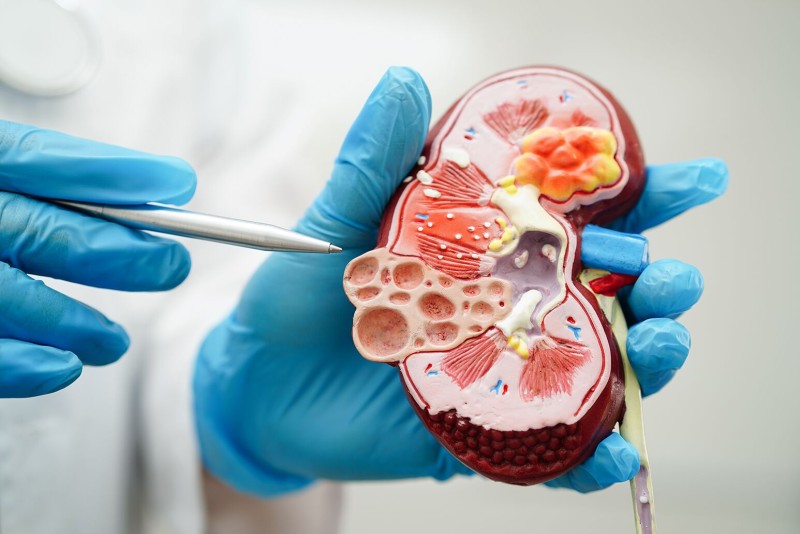On the surface, kidney disease and orthopedic health might seem like two entirely separate fields of medicine. One deals with the body’s primary filtration system, while the other focuses on the skeletal structure and its intricate network of joints, muscles, and ligaments. However, the reality is that these two systems are deeply interconnected. For individuals living with chronic kidney disease (CKD), the condition can have a significant and often surprising impact on their bones and joints, making the expertise of an orthopedic specialist a crucial part of their care team.

How Your Kidneys Affect Your Bones
The kidneys play a vital role in maintaining the body’s mineral balance, specifically calcium and phosphorus. They are also responsible for activating vitamin D, which is essential for calcium absorption from the gut. When the kidneys are not functioning properly, this delicate balance is thrown off, leading to a condition known as Chronic Kidney Disease–Mineral and Bone Disorder (CKD-MBD).
This disorder can manifest in several ways, including:
- Renal Osteodystrophy: This is a broad term for bone abnormalities that occur in people with CKD. It can lead to weak, brittle bones that are highly susceptible to fractures.
- Osteoporosis: The mineral imbalance and hormonal changes caused by kidney failure can accelerate bone loss, increasing the risk of fractures, particularly in the hip and spine.
- Joint and Muscle Pain: The buildup of toxins and mineral deposits in the body can lead to a variety of painful symptoms, including joint aches and muscle weakness.
The Orthopedic Connection: When to Consult a Specialist
Given the potential for significant skeletal complications, an orthopedic specialist plays a critical role in the management of a patient with kidney disease. While an endocrinologist or nephrologist will manage the underlying kidney condition, an orthopedic specialist focuses on treating and preventing the musculoskeletal problems that arise as a result.
You might need to see an orthopedic specialist if you experience:
- Fractures: Weakened bones from CKD-MBD can lead to fractures from even minor falls. An orthopedic specialist can manage the fracture and recommend strategies to prevent future injuries.
- Joint Pain: While joint pain can be a general symptom, an orthopedic evaluation can help determine if it’s related to arthritis, soft tissue damage, or a buildup of minerals in the joint.
- Muscle Weakness: A specialist can diagnose the cause of muscle weakness and recommend therapies or exercises to maintain strength and mobility.
- Surgical Needs: In cases where surgery is required for a fracture, a joint replacement, or other orthopedic issues, a specialist will collaborate with the patient’s nephrologist to ensure a safe procedure and recovery, as CKD patients have unique surgical risks.
Conclusion
The link between kidney disease and orthopedic health is undeniable. While the kidneys may be the primary focus of treatment, the long-term impact on the bones and joints can significantly affect a person’s quality of life. By working closely with a multidisciplinary team that includes an orthopedic specialist, patients can proactively manage their musculoskeletal health, reduce their risk of fractures, and find effective solutions for pain and mobility issues. This integrated approach ensures that a patient’s overall well-being is prioritized, helping them live a more active and comfortable life despite their underlying condition.
FAQs
1. Why does kidney disease affect bones?
The kidneys are essential for regulating the body’s calcium and phosphorus levels and activating vitamin D. When kidney function declines, this process is disrupted, leading to a mineral imbalance that weakens bones over time.
2. What is renal osteodystrophy?
Renal osteodystrophy is a bone disease that occurs when your kidneys fail to maintain the proper levels of calcium, phosphorus, and parathyroid hormone. This leads to changes in bone health, making them fragile and more prone to breaking.
3. When should someone with kidney disease see an orthopedic specialist?
You should consider seeing a specialist if you experience unexplained bone or joint pain, have a fracture, or are having difficulty with mobility. A consultation can help determine if your symptoms are related to your kidney condition.
4. Can bone damage from kidney disease be reversed?
While some of the damage may not be fully reversible, medical management and lifestyle changes can help slow the progression of bone disease. A specialist can help you manage pain, prevent fractures, and improve your quality of life.
5. How do orthopedic treatments differ for patients with kidney disease?
Orthopedic specialists work closely with the patient’s nephrology team to ensure that any treatment, especially surgery, is tailored to their specific needs. This might include adjusting medication, managing fluid levels, and monitoring bone density closely.
If you or a loved one is living with kidney disease and experiencing bone or joint issues, a consultation with an orthopedic specialist can provide clarity and a path forward. Visit our website https://sccplano.com/locations/east-plano/ to learn more about our comprehensive approach to orthopedic care. For a personalized consultation, please call us today at (972) 848-0873 / (972) 633-8747 to schedule an appointment. Our team is here to help you regain your mobility and quality of life.
